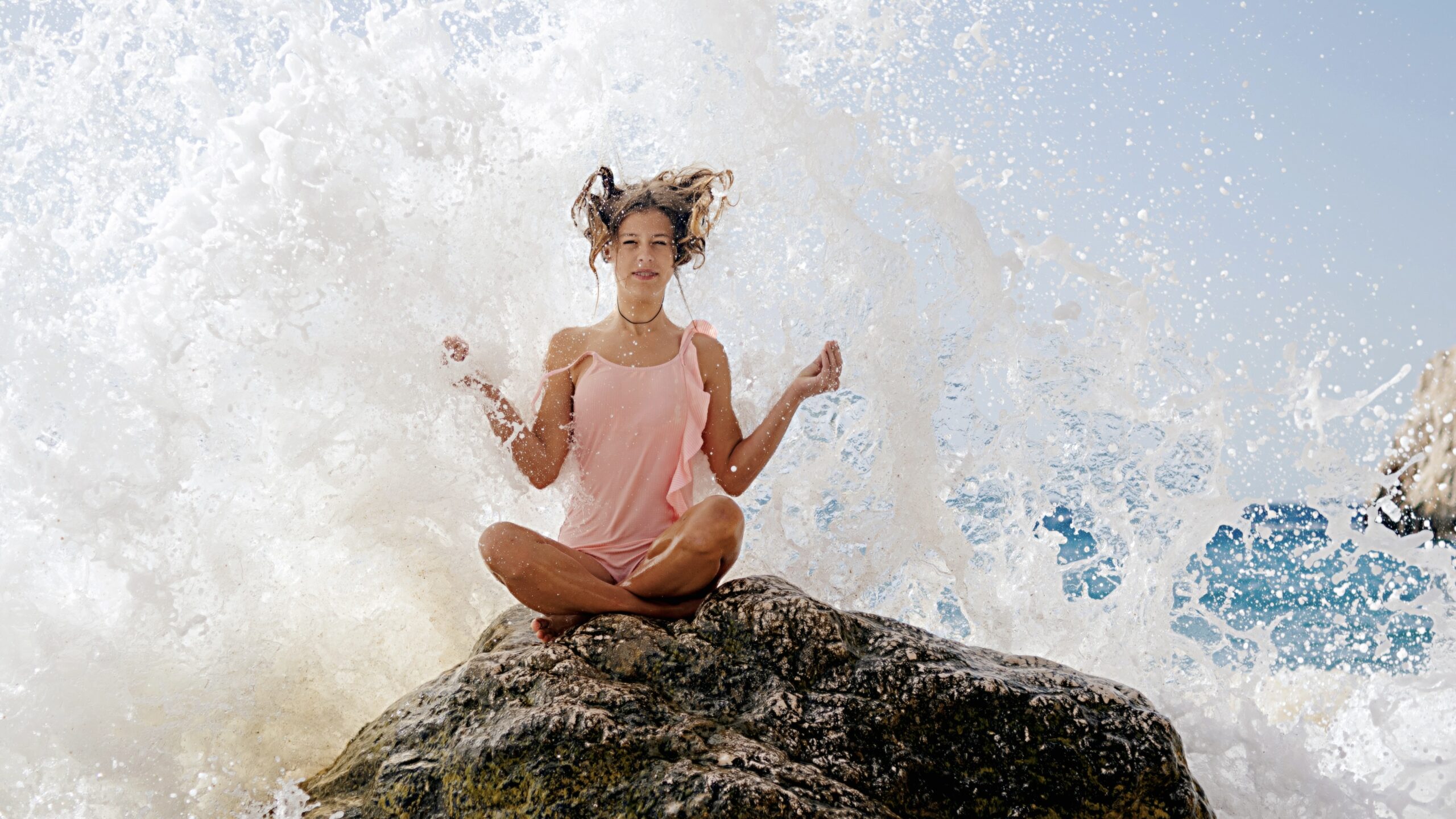Beyond regulatory hurdles and certain misconceptions, kava is having another moment in the sun
In particular, ASX-listed kava product producer The Calmer Co. is starting to see the fruits of its labour
Global demand for healthier alternatives to alcohol, and various competitive advantages are playing a part
In an increasingly anxious world, plant-based recreational beverage kava appears to be growing in popularity. ASX-listed The Calmer Co. believes the time has never been more right for the drink to become a global phenomenon.
“Recreational beverage”… “alcohol replacement”… “mood enhancer” – more and more, these terms are being marketed to describe kava to the health-conscious among us. Which is just about everyone these days, it seems. Even the odd Stockhead journo.
The drink, produced from the ground roots of the plant Piper methysticum, specifically found in islands across the South Pacific, has for generations – thousands of years actually – been used socially, and for ceremonial cultural purposes in that beautiful part of the world.
It’s only in more recent times that global markets – particular the US, but also here in Australia – have begun to take a greater interest in the drink’s reported benefits, with enterprises such as ASX-listed The Calmer Co. marketing kava-based products as solutions to “calm nerves, support mind and muscle relaxation and induce sleep”.
In the US, meanwhile, kava bars have been spreading across the country as regulations surrounding the beverage relax in most states, and as younger demographics are shown to be consuming less alcohol – with some reports suggesting there are more than 500 kava-specific watering holes America-wide and growing.
In Australia, kava’s recent resurgence has come on the back of a long, and complex history – as Stockhead detailed in an August 2023 article – that ultimately saw the government lift an import ban in early 2022.
That was originally in place over concerns that overuse of kava was having detrimental social and health effects in some indigenous communities.
To get more of a handle on the growing kava market, the buzz and misconceptions surrounding the drink and more, Stockhead caught up again with Anthony Noble, CEO of an Aussie firm with Fijian origins, The Calmer Co. – formerly known as Fiji Kava.
‘Functional beverages’ – Calmer’s evolution
The Calmer Co. has seen strong sales growth for its powdered kava drinks over the past several months, says Noble, through a hard-working ecommerce/online sales model, fervent marketing, as well as turning over increasingly good numbers through its placements in Coles supermarkets Australia-wide.
To quantify some of that, the company’s most recent three-month quarterly report to December 31 suggests “continued strong sales performance with revenues of $918k in the quarter (+106% vs PCP and +59% vs Q1FY24)”.
Ecommerce Sales grew by 83% quarter on quarter, meanwhile, to a record $658k (vs $359k in Q4Y23) – “driven by strong growth in the Australian market”.
The big evolution for Calmer over the past year, notes Noble, is that it’s “taken the business from being focused on capsules and nutraceuticals sold through pharmacies and supermarkets to one that produces and sells functional beverages.
Those, explains Noble, are simply “drinks that do something for you”.
“And in the sense of our business, it helps people to sleep and unwind and relax. It can be considered really an alcohol replacement.”
There’s a buzz about kava – does it also give one?
“Alcohol replacement” – does this mean, then that you can get a bit of a buzz from the products The Calmer Co. sells at Coles?
Without saying that specifically, Noble notes:
“Kava, in general, has a really beautiful calming effect. It makes your mouth go numb and tingly when you drink it, and you do feel a little bit of a buzz. And then that relaxed effect, that’s similar to Xanax.
“It interacts with one of the cannabis receptors in the brain – a weak interactor with CB1 – so there’s a very slight similarity to cannabis, but nowhere near as intoxicating, and has the benefit of reducing anxiety.”
And presumably resulting in a distinct lack of need to consume eight pizzas with a side of Cheetos while attempting to make some sort of sense of David Lynch’s Eraserhead.
Negative perceptions and misconceptions
We’ve touched on some of kava’s purported health benefits, but we also asked Noble about some of the more negative perceptions kava’s faced. And are some or all of these, in fact, misconceptions?
“Kava can make you feel intoxicated if taken liberally. But if you drink too much, you just feel sleepy. You don’t get wobbly like being drunk,” said Noble.
“But there are a few major misconceptions around kava worth noting” he adds.
“There was a lot of negative publicity surrounding the drink regarding its use in indigenous communities in Australia in the early 2010s when John Howard’s government placed a ban on kava.
“There’s a lot of misinformation about the misuse of kava in some communities. The reports that came out at the time were actually about people who where mixing kava with methylated spirits to create some sort of super cocktail.
“It was the methylated spirits that was actually hurting them.”
“Kava was actually originally introduced into indigenous communities as a way to help create a shift away from alcohol. When prepared and consumed traditionally, as it is in the Pacific, it has none of the negative effects of alcohol.”
Noble also believes Calmer’s partnership with Coles helps to break down any lingering negativity surrounding indigenous Australian connections with kava, in part due to “Coles being the largest employer of indigenous people in Australia.
“To get on the shelves at Coles, we had to go through all sorts of legal and regulatory doors, but we also had to get clearance through Coles’ Indigenous Affairs Committee.”
And then, the other main misconception about kava, says Noble, is that it’s “something that could be potentially dangerous to consume”.
He refers specifically to reports in the early 2000s in Germany about a supposed connection to liver damage – the details around which have since been debunked, he says, clarifying:
“In fact, the World Health Organisation has since released a ‘codex’ confirming that kava is completely safe.
“But that preconception about kava and liver damage persists all over the internet. It’s a lot of effort and we’re working really hard to educate people that it’s simply not true. It did hit the industry really hard.”
Global demand – why kava could boom
Persistent misconceptions aside, then, why is now the time for a kava boom?
The cumulative effect of shifting consumer trends towards healthier lifestyles, that’s been happening for many years now, is a primary reason, says Noble.
And, in particular, he mentions the shift to lower consumption of alcohol that’s reportedly prevalent in younger generations coming through.
“Studies have shown that around about a third of people under 30, are just not drinkers. That used to be more like about 2 to 5%. There’s been this huge growth in younger people shifting away from consuming alcohol.
“It’s a massive demographic shift, and that’s backed up by all the low/no-alcohol product category growth.”
And on the health shift, “sleep and stress are two of the top categories of health focus at the moment,” adds The Calmer Co. boss.
“I think the pandemic has also played a role. It did make more people begin to think about taking better care of themselves and dealing better with stress.”
Regulatory barriers? Other markets?
There are still significant regulatory barriers that companies such as Calmer face around the world for promoting and selling kava as a drink. It’s still prohibited for sale across Europe, for instance, although Noble says he’s hearing some rumours that could change in the UK before too long.
The US, he says, provides a huge opportunity, however, and that’s partly because it’s less tightly regulated than, for instance, here in Australia and the Pacific.
“Over there, we can introduce things like different flavoured kava drinks. It’s definitely the no. 1 market for kava at present. The trend towards it there is massive with kava bars all through Florida, Georgia, New York and up and down the west coast.”
The company is also dipping a toe cautiously into China, which could be another potentially huge market opportunity, once Australian and US opportunities are fully developed, says Noble.
Supply chain advantage
One of the biggest competitive advantages that Calmer has, says Noble, is its supply chain in Fiji.
“The industry is very fragmented and populated by middlemen. But we have a completely transparent supply chain, buying directly from farmers. We’re the only kava company that does that.
“We process fresh, green kava within 24 to 48 hours of harvest within our facility in Fiji. We pay the highest price in the market as a result of that – so we have a price advantage by buying direct, but we also pay the most money back to the farmers.”
It’s a digitised supply chain, says Noble, that also enables the company to qualify and quantify its provenance.
“And having a stamp of approval from the Indigenous Trust Fund board, which is the land-owning trust in Fiji – that’s been really important for building a good relationship with the farmers,” he adds.
“We’re the only foreign company with a licence to operate in the industry in Fiji, because that’s where we started our business.”
What next for The Calmer Co.?
The rapid approach of the company’s break-even point after a difficult start and lengthy turnaround for the industry as a whole, says Noble, and then progression into a stronger position through the establishment and evolution of recent partnerships.
Much of Calmer’s recent growth as a company has come in the form of multiple recently formed strategic deals, including launching into China via a “Tmall Global Flagship store”, which is a “cross-border” ecommerce enterprise connected to retail behemoth Alibaba.
The company also has a b2b relationship with IMCD Network Nutrition, which manages all the company’s b2b selling into pharmaceutical grade kava customers globally.
And a global distribution deal with Leilo – a sparkling kava drink in the US – is another important focus, in which Calmer distributes the product globally, starting with a launch in Fiji.
There are more, including a large Pacific distribution operation with CJ Patel and an ongoing and evolving sponsorship of Fiji Rugby.
Generally speaking, though, Noble is looking forward to what he believes will be “an explosive 12 months” for The Calmer Co. and kava more generally.
The post Why the buzz for kava is growing, and how The Calmer Co. is capitalising appeared first on Stockhead.























+ There are no comments
Add yours